Cargando...
Recursos educativos
-
Nivel educativo
-
Competencias
-
Tipología
-
Idioma
-
Tipo de medio
-
Tipo de actividad
-
Destinatarios
-
Tipo de audiencia
-
Creador
-
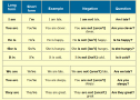
Am / is /are
Tiching explorer Organización
- 1 lo usan
- 7272 visitas
This website provides an explanation about the use of "am", "is" and "are" in affirmative, negative and questions in present simple. It is linked with grammar exercises.
-
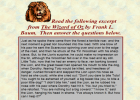
Which writing is right?
Tiching explorer Organización
- 4230 visitas
In this lesson we learn how to choose choose an appropriate format for writing. We practice with expository writing. We write an informational, descriptive and accurate text about lions.
-
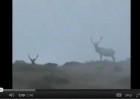
What is an ecosystem
Tiching explorer Organización
- 3918 visitas
This video explores the dynamics in an ecosystem.
-

Is it true?
Tiching explorer Organización
- 7190 visitas
The resource provides poems with rhymes. Discuss if the facts are true or false.
-
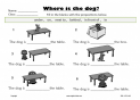
Where is the dog?
ESL Kids Lab Organización
- 1 lo usan
- 1992 visitas
Printable worksheet (PDF). In this activity we practice the use of prepositions (under, on, next to, behind, in front of, in)
-
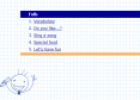
Food is good!
Xtec Organización
- 1807 visitas
Set of activities designed to help us learn vocabulary related to food. Includes vocabulary exercises, a song and a cooking recipe proposal.
-

Webquest: Bullying is wrong
Tiching explorer Organización
- 4374 visitas
This webquest is designed to introduce us to the different types of bullying. It helps us understand that bullying is wrong and it reflects on how we would feel if we were the victim. We work in groups…
-
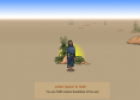
Game: Darfur is dying
Tiching explorer Organización
- 1 lo usan
- 3052 visitas
Game that provides a window into the experience of the 2.5 million refugees in the Darfur region of Sudan. Players must keep their refugee camp functioning, and learn about the genocide in Darfur that…
-

ENGLISH IS FUN 2
Richard Petterson Docente
- 7 lo usan
- 1199 visitas
-
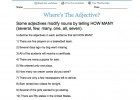
Where is the adjective?
Tiching explorer Organización
- 4031 visitas
This exercise focuses on quantifiers like "several", "few", "many", etc... Students should identify them in the 12 sentences.
Te estamos redirigiendo a la ficha del libro...













